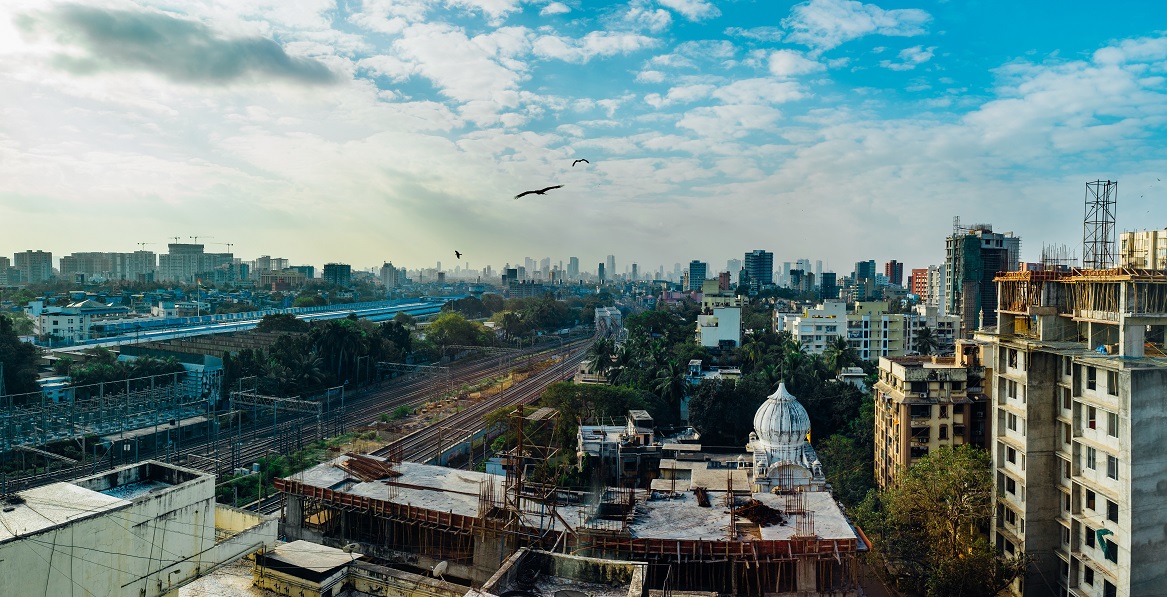Helping cities make big ideas happen™
Helping cities make big ideas happen™
Going local for Climate Action

The ongoing COVID-19 pandemic is the defining global health crisis of our times and is proving to be one of the greatest challenges faced by humanity. It is wreaking havoc around the globe and has forced most of human work to shut down. However, these uncertain times have inadvertently helped the environment, with frequent sightings of clean air, blue skies and clear river water. While human beings still grapple to come to terms with the pandemic and are finding ways to reach a “new normal”, the lingering question is how can cities cope with challenges like these?
As challenges, both COVID-19 and Climate Change are different, they do have a striking similarity in terms their global nature which requires all stakeholders to work together. However, unlike COVID-19, Climate Change is a gradual crisis which threatens human health and well-being through extreme weather events that exist over long periods of time, like extreme heat, changing rainfall patterns, droughts, rising sea levels, water scarcity, disturbed agriculture produce which in turn affects livelihoods. For example, in 2017 over 1.2 million people died in India due to air pollution with highest PM 2.5 exposure; in 2019 Delhi experienced one of the longest and most intense heat waves in decades, with temperature rising to 51 degrees Celsius, between July-August 2019, Bihar, Odisha, Maharashtra, Kerala and Karnataka experienced life-threatening floods. The changing climate makes our cities vulnerable and imposes huge life risks.
As economies start to rebuild in the new normal, it is essential to assess our readiness not just while responding to crises but also to growing impacts of Climate Change. Cities being engines of economic growth and centers for socio-cultural development contribute 6.5% of Global GHG emission, are crucial to combat Climate Change impacts. For cities, therefore, local level readiness would be key in achieving preparedness for Climate Change impacts.
In February 2019, the Ministry of Housing and Urban affairs (MoHUA) launched “Climate Smart Cities assessment framework”. The objective of this framework is to assess city’s readiness to combat Climate Change impact and provide guidance for becoming more responsive and less vulnerable. It aims to involve all relevant Urban Local Bodies (ULBs) i.e. institutions of local self-governance which look after planning, development and administration in urban areas, and nudge them towards climate responsive developmental practices. These ULBs possess the most up-to-date knowledge on local environment, population and city happenings. In times of crisis, they are most accessible authority for citizens and hence, their role becomes key in the equation. Empowering ULBs by building strong institutional set-up is the next logical step to ensure prompt local response and efficient support to the city.
Empowering Urban Local Bodies (ULBs)
Following are some suggestions that can be considered for defining various functions and actions of ULBs to help better combat Climate Change:
- Re-Evaluating Institutional structures and mandates: In the 73rd and 74th amendments to the Indian Constitution in 1992, greater local governance powers in health and education were assigned to municipal governments. These included the right to raise revenues, pursue social justice policies and to direct economic development. However, these amendments have not been effectively implemented. The various urban development policies still belong to the realm of state government since devolution of powers has not taken place yet. It is time to re-evaluate the institutional structures and mandates for facilitating and achieving collaborative, contextual and climate sensitive developmental goals.
- Awareness and readiness through Capacity Building: It is imperative to undertake a comprehensive approach towards empowering ULBs. Capacity building is one of the essential steps to achieve this. Capacity building for ULBs can be done by research or educational institutions, Climate Change experts and other sector experts with requisite knowledge and experience. Creating awareness about Climate Change impacts and imparting technical understanding of sectoral interventions for combating Climate Change, thus, bridging knowledge gap.
- Effective Collaborations: Another way of strengthening the functioning of ULBs is through effective collaborations. These can be of two types: one is partnering with private sector or startups to bridge the service delivery gap through innovation or technical solutions and second is through partnering with cities for peer-to-peer learning to understand effective measures for governance, capacity building, technology application, etc. Another association could be with community organizations such as Resident Welfare Associations, local NGOs like Goonj and Bhumi, that can bring in grassroot level needs assessment for local bodies to set their priorities as well as create awareness among people. Such collaborations help the local bodies mitigate Climate Change and set achievable adaptation targets.
- Unhindered and Innovative funding access: One of the most critical enablers for any developmental intervention is finance. Preliminary estimates indicate that India needs approximately USD 2.5 trillion till 2030 to be able to meet its Climate Change targets. Strong access to funding for ULBs would be required to bridge the existing financial gaps through better allocation, adopting innovative financing mechanisms to raise funding, and leveraging international and domestic sources from public and private sector. Besides, decentralization based on 73rd and 74th constitutional amendment is another way to access to climate finances for local level intervention as it calls for strengthening local level government.
An ounce of prevention is worth a pound of cure. Empowering ULBs through strong institutional structures and mandates, up-to-date knowledge, functional and effective collaborations as well as robust funding access will allow effective on-ground actions. Especially, with a clear understanding of the diverse geographies and climatic conditions, thus facilitating contextual measures for combating climate change.
